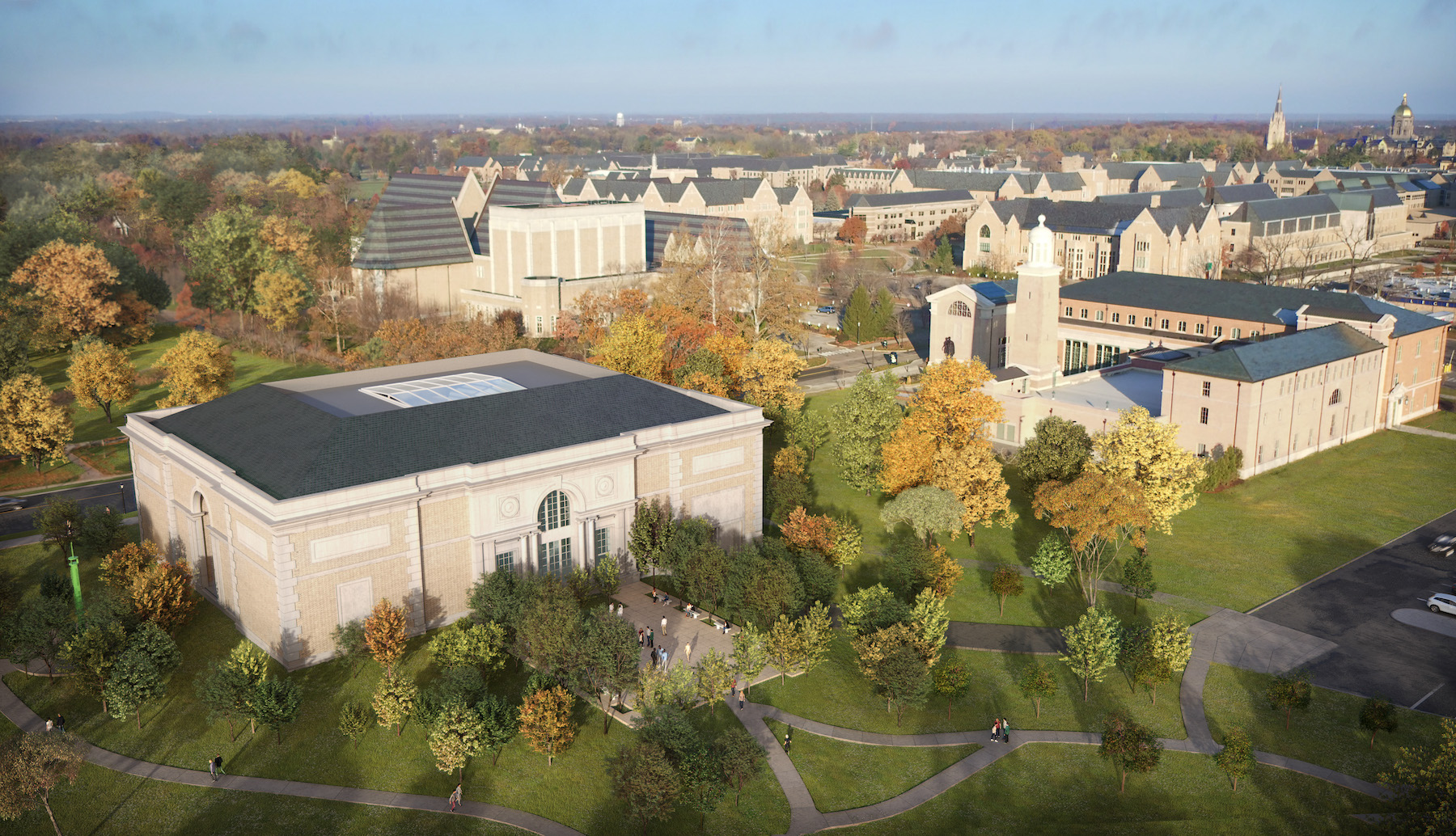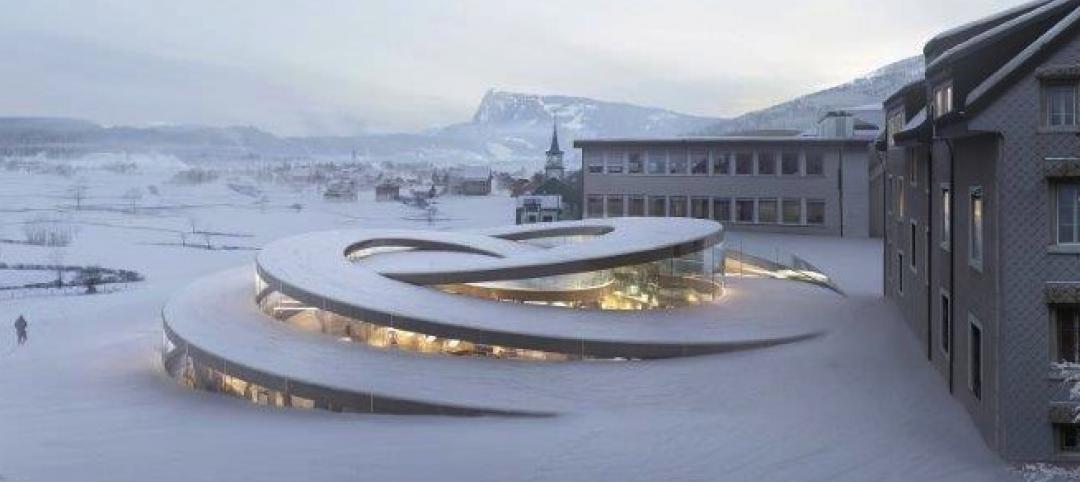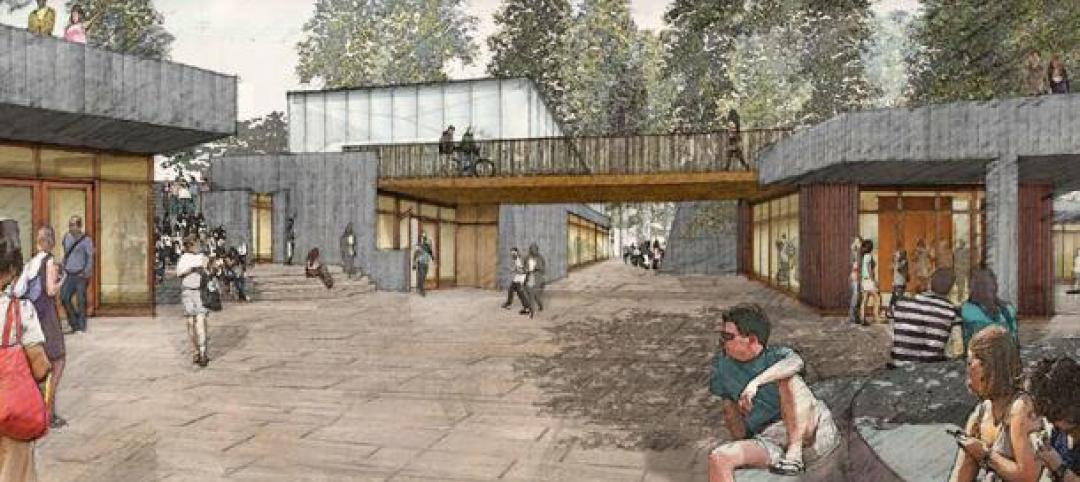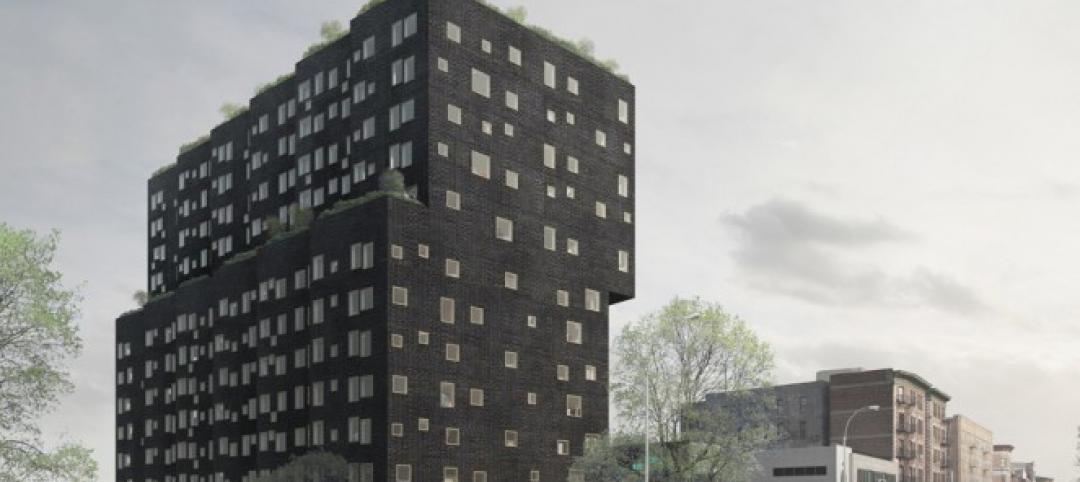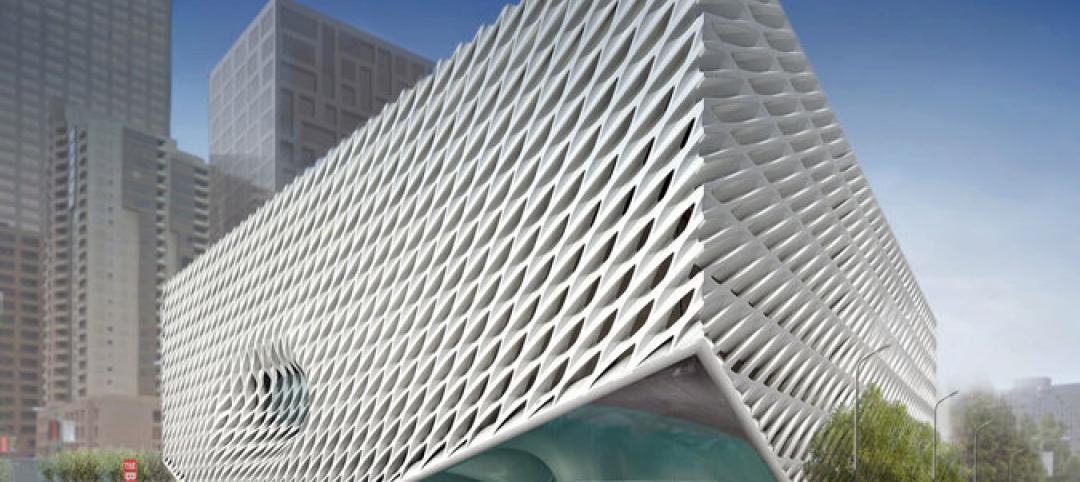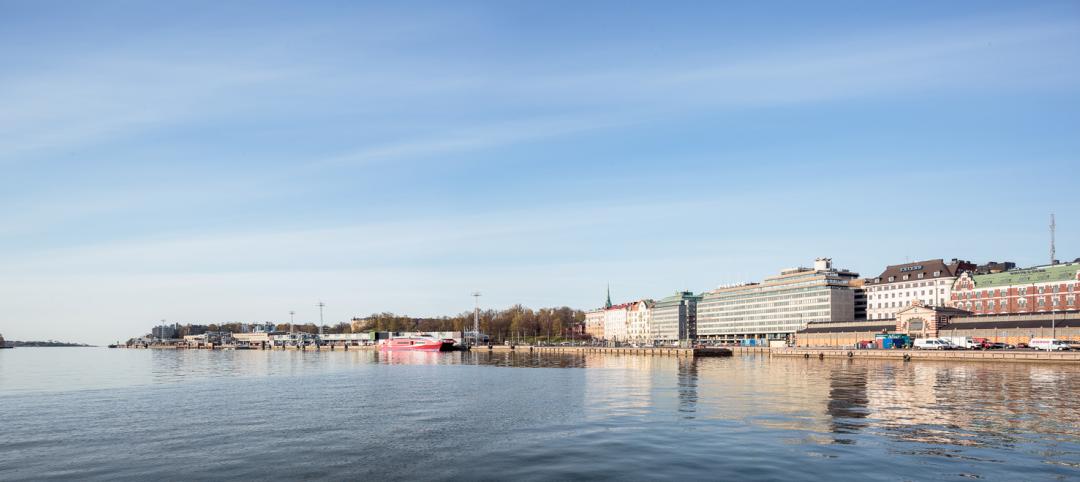Next November, the University of Notre Dame in Indiana is scheduled to open the first phase of Raclin Murphy Museum of Art, a 70,000-sf cultural facility that will eventually replace the campus’ venerable Snite Museum of Art and double the exhibit space available for Notre Dame’s 31,000-item art collection.
The building under construction establishes a new location for the museum, and is considered to be a “front door” to an arts district on the campus’ south side that already includes the DeBartolo Performing Arts Center, the nine-acre Charles B. Hayes Family Sculpture Park, and the Matthew and Joyce Walsh Family Hall of Architecture.
Long-term storage of Notre Dame’s vaunted collection of prints, drawings, and photography, along with most of the museum’s personnel, will remain at Snite until Phase 2 of this complex is realized. Phase 2’s start date and timeline have yet to be disclosed, but what’s known is that it will increase the size of the new museum complex to 132,000 sf, and provide more gallery space, offices, an auditorium, and a works-on-paper study center.
Robert A.M. Stern Architects (RAMSA) is the design architect on this project. The rest of the Building Team includes Bulley & Andrews (GC), the engineering firms Kohler Ronan (MEP), Thornton Tomasetti (SE) and TfL (CE); and Gallagher & Associates (exhibit design). The construction cost has not been disclosed.
Giving exhibits equal weight in the museum
Last week, BD+C interviewed RAMSA’s Melissa DelVecchio, FAIA, Partner; and Anthony McConnell, Senior Associate, about the Raclin museum’s design features within its three floors and a lower level.
DelVecchio noted that new construction was necessitated by the lack of available space near the Snite Museum for expansion. When Snite opened a generation ago, it was on the outer edge of what was then Notre Dame’s campus; now, it’s roughly in the middle of a significantly bigger campus. “It’s hard to find, and there’s no nearby parking,” she said.
Snite only has enough space to exhibit 2-3 percent of the museum’s collection, whereas Raclin will be able to show around 5%. DelVecchio pointed out, as well, that the new building will house a large temporary gallery and loading dock to better attract and handle traveling exhibits, something that Snite was not able to accommodate. The new building also will have more storage space that’s accessible to students for study purposes.
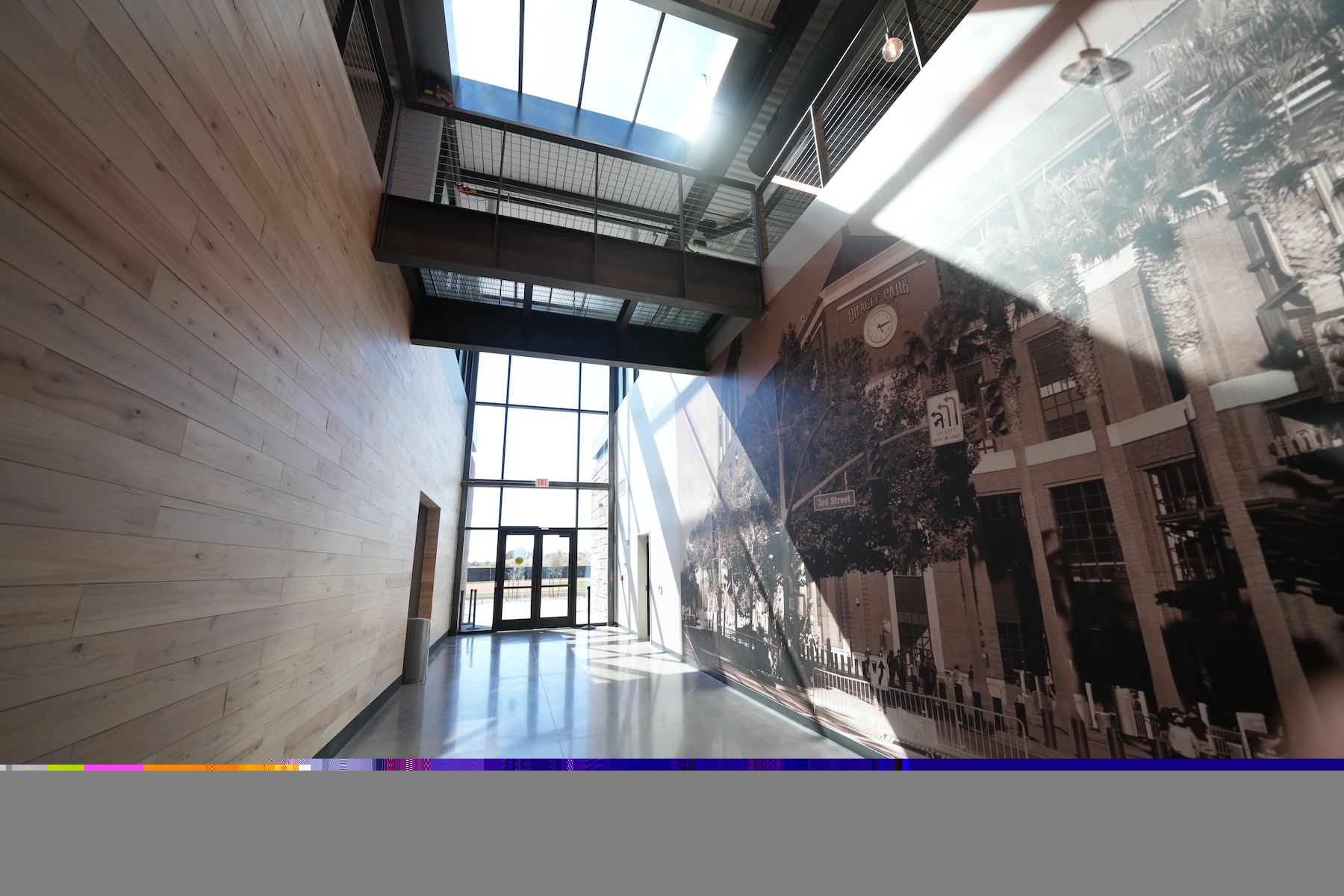
The galleries within Raclin revolve around a central, multi-height atrium that rises to a skylight, and the galleries themselves will have “equal prominence,” said McConnell, compared to some spaces in Snite that relegated the art to “second class” exhibition.
The lower level of Raclin “has no back,” he explained, in that its gallery for International Modern and Contemporary Art blends into the museum’s sculpture court. Raclin is also distinguished on its west side by an oval-shaped working chapel, Our Lady, Queen of Families, that will display some art and be near galleries with ecclesiastic art on display.
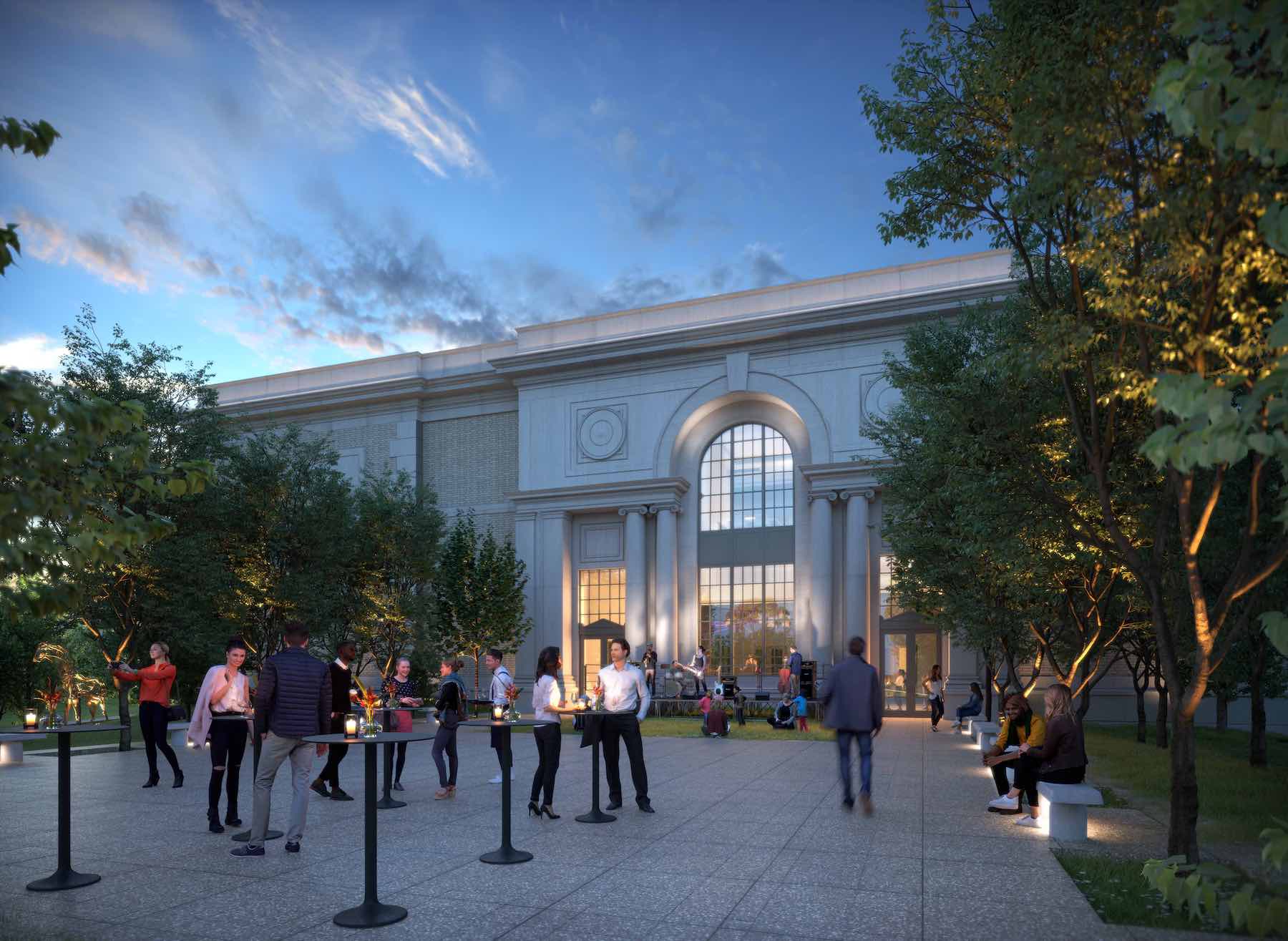
From an operational standpoint, the museum is designed to present zero thresholds for patrons with disabilities. That includes the installation of automated door openers for the facility’s restrooms.
The exterior design of this rectangular building is classical, and its materials will match the rest of the arts district and streetscape, said DelVelcchio.
Related Stories
| Jun 18, 2014
Arup uses 3D printing to fabricate one-of-a-kind structural steel components
The firm's research shows that 3D printing has the potential to reduce costs, cut waste, and slash the carbon footprint of the construction sector.
| Jun 16, 2014
6 U.S. cities at the forefront of innovation districts
A new Brookings Institution study records the emergence of “competitive places that are also cool spaces.”
| Jun 13, 2014
First look: BIG's spiraling museum for watchmaker Audemars Piguet
The glass-and-steel pavilion's spiral structure acts as a storytelling device for the company's history.
| Jun 12, 2014
Tod Williams Billie Tsien Architects' design selected for new UCSC facility
The planned site is a natural landscape among redwood trees with views over Monterey Bay, a site that the architects have called “one of the most beautiful they have ever worked on.”
| Jun 12, 2014
Austrian university develops 'inflatable' concrete dome method
Constructing a concrete dome is a costly process, but this may change soon. A team from the Vienna University of Technology has developed a method that allows concrete domes to form with the use of air and steel cables instead of expensive, timber supporting structures.
| Jun 11, 2014
David Adjaye’s housing project in Sugar Hill nears completion
A new development in New York's historic Sugar Hill district nears completion, designed to be an icon for the neighborhood's rich history.
| Jun 9, 2014
Green Building Initiative launches Green Globes for Sustainable Interiors program
The new program focuses exclusively on the sustainable design and construction of interior spaces in nonresidential buildings and can be pursued by both building owners and individual lessees of commercial spaces.
| Jun 9, 2014
Eli Broad museum files $19.8 million lawsuit over delays
The museum, meant to hold Eli and Edythe Borad's collection of contemporary art, is suing the German company Seele for what the museum describes as delays in the creation of building blocks for its façade.
| Jun 4, 2014
Want to design a Guggenheim? Foundation launches open competition for proposed Helsinki museum
This is the first time the Guggenheim Foundation has sought a design through an open competition. Anonymous submissions for stage one of the competition are due September 10, 2014.
| May 29, 2014
7 cost-effective ways to make U.S. infrastructure more resilient
Moving critical elements to higher ground and designing for longer lifespans are just some of the ways cities and governments can make infrastructure more resilient to natural disasters and climate change, writes Richard Cavallaro, President of Skanska USA Civil.


